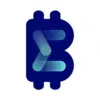$0.000939
24h Change -0.64%
24h High $0.000936
24h Low $0.000928
24h Volume $2
Max Supply: 0
Circulation: 2,181,748,789.966
Market Cap: $2,048,057
Listing Date:
2023-05-08, 07:06:43
Network:
Signum Main Chain
Asset Type:
Coin
Links
Social
Primary Markets (2 active)
Total Market Volume: ~$2
Liquidity Pools (2 Active)
Total Pool Liquidity: ~$822
| Market | Volume | |
|---|---|---|
$1.29 | ||
$0.96 |
Hot Wallets
Deposit
Block #1421191 @ 3.81 min ago
Balance: 312367.29568771
Updated: 2.25 min ago
Withdraw
Block #1421191 @ 3.81 min ago
Balance: 23036987.85862912
Updated: 2.25 min ago
Highlighted Assets
Market Cap: $79.0K $0.000748
Market Cap: $3.14K $0.000000127
Market Cap: $1.05M $0.0341
Top Volumes
About Signum
What is Signum
Signum brings a powerful blockchain solution to the world in the most sustainable way. Like Bitcoin, Signum provides a digital currency called Signa (ticker: SIGNA) that is distributed, traded and stored using a decentralized ledger system. There are no intermediaries, payment gateways, or banks.
Signum is so much more than a digital currency. As a customizable platform, it has the power to feature unstoppable and censorship-resistant decentralized applications. Anyone can create digital assets (smart tokens) that can be used in ways only limited by our imagination. Exchanges, marketplaces, financial services, and games barely scratch the surface. The best part is that it is genuinely sustainable compared to other cryptocurrencies like Bitcoin or Ethereum.
What makes Signum truly sustainable
Bitcoin's infamous Proof of Work consensus protocol requires expensive, specialized, energy-hungry hardware. They result in an enormous amount of 121 TWh of energy consumption per year and more than nine kilotons of e-waste. Using easily re-purposed consumer-grade hardware, Signum also avoids e-waste and requires less than 0.002% of that energy to drive the blockchain. On Signum, energy-intensive calculations are only once executed when the miners plot their available disk space. After that, the mining process requires reading through a tiny fraction of this disk space (1/4096, less than 0.025 % of the plotted capacity). The hard disks are usually idle, as this small fraction only needs to be read every few minutes to secure the network.
Proof of Commitment (PoC+)
Signum is based on Proof of Commitment (PoC+). A decentralized consensus is the evolution of the Proof of Capacity (PoC) consensus.
Unlike the well-known Proof of Work (PoW) consensus used by Bitcoin and many other coins, PoC+ uses available disk space - no need for special power-hungry equipment.
This innovative consensus offers a new way for miners to increase their effective storage capacity - committing a Signa balance (stake) in their account. It will help secure the network and improve their chances of earning mining rewards. PoC+ is a greener option since effective capacity can be increased without purchasing more equipment.
The mining process in the PoC+ consensus is so effective it has such low hardware requirements that any consumer-grade PC can be used to mine. The user will not even notice the mining process happening, aside from the occasional blinking LEDs from the hard disk drive (HDD)!
Tokenization
Issuing your smart token on the Signum blockchain is simple. The smart token is immediately available for transfers and trading: perfect for crowdfunding, ICO, or any other use case.
Smart Contracts
Signum is shipped with smart contracts implemented as Automated Transactions (AT). Initially developed by CIYAM, this system is Turing-complete and has infinite use cases. Signum was the first platform to run Turing-complete smart contracts on a public blockchain. A unique feature of Signum's smart contracts is that they can be programmed to self-execute. Most of today's smart contracts only react to the transactions they receive. Signum's self-running smart contracts provide endless potential for new applications, for example, decentralized autonomous lotteries that need to run at a specific time. Signum will make your smart contract experience easy and user-friendly. With Signum SmartJ, you get a powerful tool to develop smart contracts in easy-to-write Java - no need for developers to learn an additional blockchain language.
Smart Layer 1.0
Signum is, in general, a layer one blockchain. The main difference to another layer one chain is that Signum introduces smart transactions. Adding a single transaction to the chain triggers thousands to millions of changes in the balance on different accounts by this transaction. Due to this, Signum introduced a new KPI STPS (smart transaction per second). Indicating how many smart transactions are triggered by one transaction signed and sent to the chain. The current limit is 1.2 million balance changes per block - or 5,000 STPS.
Signum brings a powerful blockchain solution to the world in the most sustainable way. Like Bitcoin, Signum provides a digital currency called Signa (ticker: SIGNA) that is distributed, traded and stored using a decentralized ledger system. There are no intermediaries, payment gateways, or banks.
Signum is so much more than a digital currency. As a customizable platform, it has the power to feature unstoppable and censorship-resistant decentralized applications. Anyone can create digital assets (smart tokens) that can be used in ways only limited by our imagination. Exchanges, marketplaces, financial services, and games barely scratch the surface. The best part is that it is genuinely sustainable compared to other cryptocurrencies like Bitcoin or Ethereum.
What makes Signum truly sustainable
Bitcoin's infamous Proof of Work consensus protocol requires expensive, specialized, energy-hungry hardware. They result in an enormous amount of 121 TWh of energy consumption per year and more than nine kilotons of e-waste. Using easily re-purposed consumer-grade hardware, Signum also avoids e-waste and requires less than 0.002% of that energy to drive the blockchain. On Signum, energy-intensive calculations are only once executed when the miners plot their available disk space. After that, the mining process requires reading through a tiny fraction of this disk space (1/4096, less than 0.025 % of the plotted capacity). The hard disks are usually idle, as this small fraction only needs to be read every few minutes to secure the network.
Proof of Commitment (PoC+)
Signum is based on Proof of Commitment (PoC+). A decentralized consensus is the evolution of the Proof of Capacity (PoC) consensus.
Unlike the well-known Proof of Work (PoW) consensus used by Bitcoin and many other coins, PoC+ uses available disk space - no need for special power-hungry equipment.
This innovative consensus offers a new way for miners to increase their effective storage capacity - committing a Signa balance (stake) in their account. It will help secure the network and improve their chances of earning mining rewards. PoC+ is a greener option since effective capacity can be increased without purchasing more equipment.
The mining process in the PoC+ consensus is so effective it has such low hardware requirements that any consumer-grade PC can be used to mine. The user will not even notice the mining process happening, aside from the occasional blinking LEDs from the hard disk drive (HDD)!
Tokenization
Issuing your smart token on the Signum blockchain is simple. The smart token is immediately available for transfers and trading: perfect for crowdfunding, ICO, or any other use case.
Smart Contracts
Signum is shipped with smart contracts implemented as Automated Transactions (AT). Initially developed by CIYAM, this system is Turing-complete and has infinite use cases. Signum was the first platform to run Turing-complete smart contracts on a public blockchain. A unique feature of Signum's smart contracts is that they can be programmed to self-execute. Most of today's smart contracts only react to the transactions they receive. Signum's self-running smart contracts provide endless potential for new applications, for example, decentralized autonomous lotteries that need to run at a specific time. Signum will make your smart contract experience easy and user-friendly. With Signum SmartJ, you get a powerful tool to develop smart contracts in easy-to-write Java - no need for developers to learn an additional blockchain language.
Smart Layer 1.0
Signum is, in general, a layer one blockchain. The main difference to another layer one chain is that Signum introduces smart transactions. Adding a single transaction to the chain triggers thousands to millions of changes in the balance on different accounts by this transaction. Due to this, Signum introduced a new KPI STPS (smart transaction per second). Indicating how many smart transactions are triggered by one transaction signed and sent to the chain. The current limit is 1.2 million balance changes per block - or 5,000 STPS.
Stable Connection











